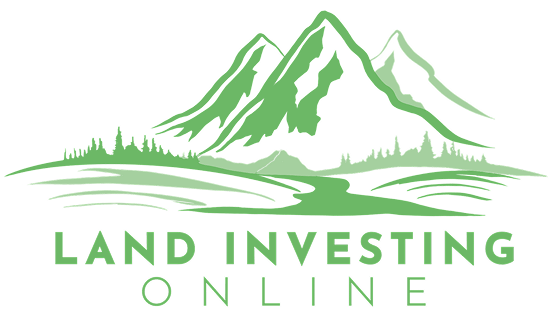Common Terminology Every Land Investor
Needs to Know
Common Terminology Every Land Investor Needs to Know

Learning how to navigate the world of land investing can feel daunting at first, filled with industry-specific jargon and technical terms. However, mastering this terminology is an essential step toward building confidence and success in your land investing journey.
Understanding these common terms will empower you to make informed decisions, analyze deals accurately, and communicate effectively with other investors, agents, and buyers.
Once you’re familiar with this language, you’ll be better equipped to assess opportunities, negotiate strong deals, and avoid costly mistakes, setting your business up for long-term growth and sustainability.
Key Land Investing Terms
Acquisition
The process of purchasing a property. This includes identifying a target parcel, negotiating terms, and finalizing the purchase.
Appraisal
An unbiased professional assessment of a property’s market value, supported by data such as comparable sales, property condition, and local trends.
Capital
The financial resources, cash or assets, that a company or investor uses for daily operations or to grow the business.
Cash Flow
The measure of money moving in and out of an investment. For example, when a landowner leases property or collects payments on a financed sale, that income represents cash flow.
Comps (Comparables)
Properties with similar characteristics (location, size, use, features) used to estimate the fair market value of another property.
Deliquency
When payments, such as loan installments or taxes, are overdue. In seller-financed land deals, monitoring delinquency is crucial to managing risk.
Direct Mail
A marketing strategy that involves sending physical letters or postcards to potential sellers. Many land investors include a purchase offer or agreement in their mailers to prompt faster responses.
Drone
An unmanned aerial vehicle used to capture aerial photos and videos of land, especially useful for remote or inaccessible parcels.
Due Diligence
The research and verification process investors perform before closing on a property. This includes reviewing legal ownership, access, zoning, flood zones, and any environmental concerns. In short: it’s “doing your homework.”
Entitlement
The legal approval process required to develop a piece of land. Entitlements may include zoning changes, permits, and environmental reviews.
Escrow
A neutral third party that temporarily holds funds or documents during a transaction until all terms are met.
Floodplain
Low-lying land adjacent to rivers or streams that may flood during heavy rain or snowmelt. Knowing if your property lies within a floodplain can affect its usability and insurance costs.
Landlocked Property
A parcel of land that has no legal access to a public road. Investors must secure an easement (legal access) to make the property usable or marketable.
Market Value
The estimated price a property would sell for under normal conditions, based on comparable sales and local demand.
MLS (Multiple Listing Service)
A cooperative database of property listings maintained by real estate brokers. The MLS helps connect buyers and sellers across networks.
Owner Occupied
A property where the legal owner resides full-time, as opposed to one that’s rented or vacant.
Purchase Agreement (PA)
A legally binding contract that outlines the terms and conditions of a property sale between a buyer and seller.
Return on Investment (ROI)
A metric that calculates the profitability of an investment, expressed as a percentage. It’s found by dividing net profit by the total investment cost.
Skip Tracing
A research technique for locating hard-to-find property owners by searching public records, databases, or contacting associates and neighbors.
Subdividing
The process of splitting one parcel into smaller lots, typically for resale or development.
Survey (Land Survey)
A precise measurement and mapping of a property’s boundaries, topography, and features. It’s essential for verifying property lines and identifying encroachments.
Surveyor's Report
The official documentation produced after a land survey, which includes boundary measurements, easements, and any encroachments.
Tax Assessment
The valuation of a property by a government entity for the purpose of determining annual property taxes.
Title Insurance
A policy that protects buyers and lenders against financial losses due to title defects, such as undisclosed liens or ownership disputes.
Title Title Search
A review of public records to confirm the property’s legal ownership and check for existing claims, liens, or other encumbrances.
Wetland
An area where water covers the soil either permanently or seasonally, supporting unique vegetation and soil types. Wetlands are often protected and may limit development.
Wholesaling
An investment strategy where an investor (the wholesaler) contracts to buy a property and then assigns that contract to another buyer, earning a fee for facilitating the deal.
Zoning
Local government regulations that dictate how land can be used, for example, residential, commercial, agricultural, or industrial purposes.
Final Thoughts
Becoming fluent in land investing terminology gives you a competitive edge.
The more familiar you are with the language of the business, the easier it is to communicate with agents, investors, and sellers, and to make confident, informed decisions.
Keep this glossary handy as you continue to expand your knowledge and grow your land investing business.

Chat with a
land investing
advisor
Discuss any questions you have about land investing, our online community or courses!

